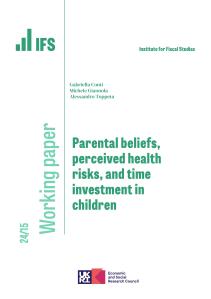An extensive literature documents the potential benefits of breast feeding for infant health. These benefits might extend to the long term. Breast feeding is associated with lower blood pressure and lower risk of type 2 diabetes and obesity, as well as with higher cognitive development measures. Alongside this, there is a strong socioeconomic pattern in breast feeding. In the UK in 2010, the incidence of breast feeding was 91% among babies whose mothers left full-time education when they were over 18, compared with 75% among those whose mothers left full-time education aged 17 or 18 and 63% among those whose mothers were 16 or under when they left full-time education.
Weekend excess mortality is well documented for emergency admissions, including stroke, trauma, kidney and cardiovascular emergencies. Although such a ‘weekend effect’ might be due to differences in case mix between weekend and weekday admissions, most studies suspect it is due to the decreased availability of experienced healthcare professionals on weekends. Some mothers benefit from the support of hospital staff to initiate and successfully establish breast feeding. We conducted a retrospective study of breast feeding in the years 2005 and 2010, comparing breast feeding incidence rates by day of week of birth. We postulated that breast feeding may vary by day of week of birth, especially for the babies of the least educated mothers, who are less likely to have access to other sources of support and information not provided at hospital.









